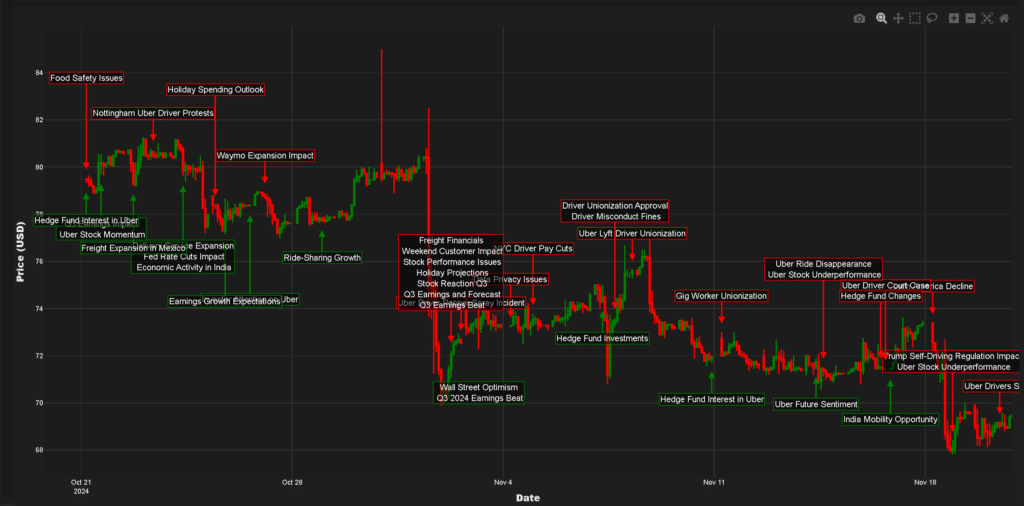The Impact Of Music Festivals On London Parks: Mark Rylance's Perspective

Table of Contents
Environmental Impact of Music Festivals in London Parks
The environmental footprint of music festivals in London's parks is significant and multifaceted. Understanding this impact is crucial for ensuring the long-term health of these vital green spaces.
Waste Management and Recycling
Large-scale events generate an enormous amount of waste. The challenge of managing this waste effectively in London parks is immense. Without proper planning, festivals can leave behind mountains of litter, polluting the environment and harming wildlife. While some festivals are making strides towards sustainable waste management—implementing robust recycling programs, composting initiatives, and reusable infrastructure—many still fall short. Mark Rylance, a vocal advocate for environmental protection, would likely emphasize the importance of drastically reducing waste generation and implementing comprehensive recycling programs, reflecting the need to treat London's parks with the utmost respect. He might advocate for:
- Zero-waste strategies: Aiming for minimal waste production through careful planning and sourcing.
- Improved recycling infrastructure: Providing clear signage and sufficient bins for various waste streams.
- Composting initiatives: Utilizing organic waste for beneficial soil enrichment.
- Increased use of reusable materials: Minimizing single-use plastics and promoting reusable cups and cutlery.
Impact on Biodiversity
The temporary transformation of London parks into festival grounds significantly impacts local biodiversity. The influx of people, noise, and temporary structures disrupts the delicate balance of the ecosystem. Noise pollution can scare away or even injure wildlife. Soil compaction from foot traffic damages vegetation, and the introduction of non-native species can further threaten existing flora and fauna. The importance of maintaining biodiversity in London's urban green spaces cannot be overstated. Mark Rylance, a passionate environmentalist, would likely highlight the need for:
- Minimizing habitat disruption: Careful site selection and infrastructure planning to protect sensitive areas.
- Noise mitigation strategies: Implementing noise barriers and scheduling quieter activities during vulnerable periods for wildlife.
- Post-festival restoration: Implementing plans to repair any damage to vegetation and soil.
- Promoting biodiversity-friendly landscaping: Using native plants and creating habitats that support local wildlife.
Carbon Footprint of Music Festivals
The carbon footprint of music festivals is substantial, stemming from transportation (attendees traveling to the event), energy consumption (lighting, sound systems), and the production and transportation of materials. Reducing the carbon footprint requires a multi-pronged approach. Mark Rylance's perspective would likely advocate for:
- Promoting sustainable transport: Encouraging the use of public transport, cycling, and carpooling.
- Utilizing renewable energy sources: Powering the event with solar or wind energy.
- Carbon offsetting schemes: Investing in verified carbon offsetting projects to compensate for unavoidable emissions.
- Sustainable sourcing of materials: Prioritizing recycled and locally sourced materials whenever possible.
Social and Economic Impacts of Music Festivals in London Parks
Beyond environmental concerns, music festivals in London parks have significant social and economic consequences.
Economic Benefits for Local Communities
Music festivals can generate substantial economic benefits for local businesses, creating jobs in hospitality, security, and other related sectors. Revenue from ticket sales, food and beverage vendors, and merchandise can boost the local economy. Investment in park infrastructure, spurred by hosting events, can also be a positive outcome. However, it's crucial to weigh these economic benefits against the potential environmental costs.
Community Engagement and Access to Green Spaces
Music festivals can foster a sense of community, bringing together diverse groups of people to share a common cultural experience. However, ensuring equitable access to these events and the green spaces they utilize is paramount. Local residents should not be excluded or negatively impacted by increased noise or restricted access to their parks. Mark Rylance’s advocacy would likely involve ensuring:
- Community consultation: Involving local residents in the planning process.
- Accessibility for all: Making the festival accessible to people with disabilities.
- Minimized disruption: Ensuring the event doesn’t unduly impact local residents.
Noise Pollution and Disturbances
The noise generated by large music festivals can be a significant source of disturbance for nearby residents and wildlife. Effective noise reduction strategies are crucial, including the use of sound barriers and careful scheduling of loud activities. Striking a balance between hosting these large events and respecting the peace and tranquility of surrounding communities is essential.
Conclusion: Finding a Balance – The Future of Music Festivals and London Parks
Music festivals in London parks present a complex challenge, requiring a careful balancing act between economic benefits, community engagement, and environmental protection. Mark Rylance's (hypothetical) perspective would underscore the critical need for sustainability and responsible event planning. Minimizing environmental impacts through sustainable waste management, biodiversity protection, and carbon footprint reduction is paramount. Prioritizing community consultation and ensuring equitable access to green spaces are equally vital. The future of music festivals in London parks hinges on the adoption of sustainable practices, innovative solutions, and a collaborative approach between organizers, local communities, and environmental advocates. Let's engage in discussions to create a model for sustainable music festivals, ensuring that London's green spaces remain vibrant, healthy, and accessible for all. Learn more about Mark Rylance's environmental work (or similar figures) and join the conversation on creating environmentally responsible music festivals in London's green spaces. Let's work together to create sustainable music festivals that benefit all!

Featured Posts
-
 Is Uber Stock Recession Resistant A Deep Dive
May 19, 2025
Is Uber Stock Recession Resistant A Deep Dive
May 19, 2025 -
 Parcay Sur Vienne Cent Participants A La Fete De La Marche
May 19, 2025
Parcay Sur Vienne Cent Participants A La Fete De La Marche
May 19, 2025 -
 Best Eurovision Song Of The 21st Century Bbc Radio 2 Vote Uk
May 19, 2025
Best Eurovision Song Of The 21st Century Bbc Radio 2 Vote Uk
May 19, 2025 -
 Ljnt Iemar Ghzt Khtt Qablt Lltnfydh Mn Nqabt Almhndsyn
May 19, 2025
Ljnt Iemar Ghzt Khtt Qablt Lltnfydh Mn Nqabt Almhndsyn
May 19, 2025 -
 Cepd Announces Next Step In Sanibel Captiva Hiring Process
May 19, 2025
Cepd Announces Next Step In Sanibel Captiva Hiring Process
May 19, 2025
